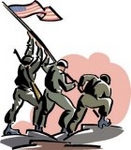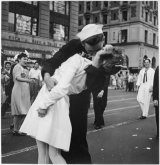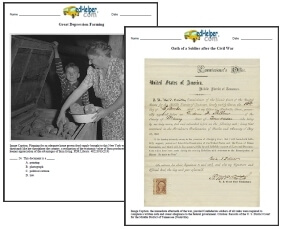
Worksheets and No Prep Teaching Resources
Reading Comprehension Worksheets
World War II

World War II
 Worksheets and No Prep Teaching Resources Reading Comprehension Worksheets World War II |
 World War II |
| edHelper's suggested reading level: | grades 7 to 9 | |
| Flesch-Kincaid grade level: | 7.17 |
|
V-J Day, Part 2 - "It's Over!"
By Toni Lee Robinson |

|
 1 America was waiting. People had been tormented for days now by rumors and speculations. How much longer could it take? The time must be near. False announcements of peace had brought frustration and an aching yearning for an end to the senseless destruction of war. The night of August 13, 1945, Americans were doomed to go to bed as they had for over three years – with the tyranny of war hanging over their heads.
1 America was waiting. People had been tormented for days now by rumors and speculations. How much longer could it take? The time must be near. False announcements of peace had brought frustration and an aching yearning for an end to the senseless destruction of war. The night of August 13, 1945, Americans were doomed to go to bed as they had for over three years – with the tyranny of war hanging over their heads. |
Create Weekly Reading Books
Prepare for an entire week at once! |
| Leave your feedback on V-J Day, Part 2 - "It's Over!" (use this link if you found an error in the story) |
 |
World War II
|
 |
High School Reading Comprehensions and High School Reading Lessons
|
 |
Social Studies
|
 |
United States
|
|
|
|
|
 | Fifty States Theme Unit |
 |
Document Based Activities |